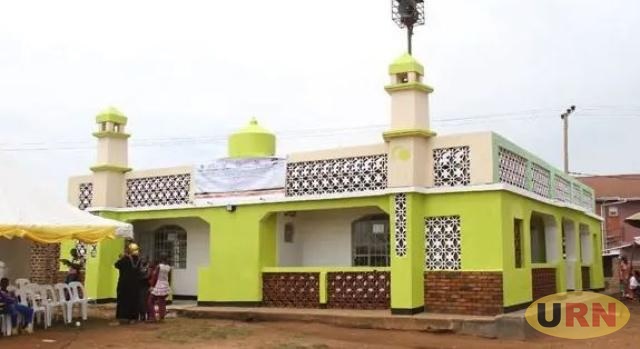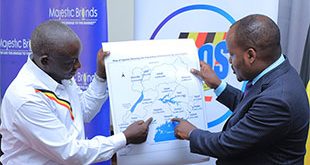
Kampala, Uganda | THE INDEPENDENT | The Uganda Muslim Supreme Council-UMSC has changed the dates on which the faithful will remember the Muslim martyrs.
Previously, Muslims marked the day on June 1, two days before Christians hold their festival in honor of the 45 young Christian converts killed in Namugongo during the reign of Kabaka Mwanga II.
Prof Badru Kateregga, the Chairperson of the Development Committee of the martyrs’ site, noted that the day has been changed to June 10, effective this year. He was addressing journalists at his residence in Bunga Kampala.
Kateregga explained that this change aims to distinguish between the Christian festival and the Muslim commemoration event, ensuring that followers are not confused about Christian practices regarding the concept of martyrs.
“In Islam, we commemorate martyrs but do not celebrate them. With the events previously held on the same days as those of Christians, one could easily lose focus, and that is why we have changed the dates. it is to avoid confusion with the celebration of other martyrs,” said Kateregga.
Prof Kateregga, who has been championing research and promotion of Muslim martyrs for years, notes that a program designed by UMSC indicates that the commemoration will start with prayers for the Muslim Martyrs at the Shuhadah Mosque in Namugongo on June 8, 2024.
“This event is meant to create awareness about the many Muslims who were martyred in this country. We shall follow the trail of the Muslim Martyrs before concluding with an event at the national mosque on June 10th that will coincide with the 50th anniversary of the Uganda Muslim Supreme Council (UMSC),” he added.
Historical records indicate that around 1874/75 during the reign of Kabaka Mukaabya Walugembe Muteesa I, Muslim converts became the first individuals in Buganda to be executed due to their newly found foreign religious beliefs.
It is reported that approximately 80 to 100 of these converts were killed in Namugongo, a circumstance reminiscent of the later execution of Christians on June 3, 1886.
But, Namugongo had been designated as a site for executing capital punishment for royals and court officials, a practice established since the reign of King Kyabaggu, the 25th king of Buganda in 1760. The grounds had also been utilized during the reigns of Kings Jjunju, Ssemakokiro, Kamaanya, Suuna II, and Muteesa I.
There has been an ongoing debate within the Islamic community regarding the commemoration of martyrs.
However, Dr. Ziyad Swallah Lubanga, Director of Sharia at UMSC, asserts that Islam unequivocally acknowledges martyrs, a tradition established since the time of Prophet Muhammad.
“During the Battle of Badr, fourteen Muslims were martyred. Over the 23 years of Prophet Muhammad’s mission, at least 230 Muslim martyrs were documented,” he clarified.
Citing Quran 3:169, Dr. Lubanga emphasized Islam’s reverence for those who perish defending their faith: “And never think of those who have been killed in the cause of Allah as dead. Rather, they are alive with their Lord, receiving provision.”
He further noted that Islam recognizes various categories of martyrs beyond those who die for their faith, urging anyone who disputes this to seek knowledge from those more informed on the subject. He also emphasized that it is the responsibility of Muslims to document those who have died in service to their faith and to educate others about them.
Regarding the redevelopment of the Martyrs Memorial Mosque at Namugongo, the Sharia director expressed no objections, highlighting his visit with the Mufti to Medina last year, where they visited the cemetery of Muslim martyrs. He noted that a mosque had been constructed there for visitors to pray for the martyrs.
Kateregga explained that besides those who were killed at Namugongo, numerous other Muslim martyrs deserve prayers, such as those who were killed in incidents like the 1979 attacks. He noted ongoing research into this matter.
Kateregga was referring to the 67 Muslims who were killed when gunmen attacked two villages in Sheema district, southwestern Uganda, during the chaotic aftermath of Amin’s downfall in April 1979. The victims of this attack were murdered and their bodies were disposed of in the Rwizi River. Furthermore, nine mosques were destroyed, and numerous Muslim homes and crops were also burned down during this tragic period.
Meanwhile, the UMSC is currently seeking 31 billion shillings to enhance its site at Namugongo with a new and improved memorial mosque to replace the current dilapidated one. Muslims are awaiting government compensation for squatters who illegally annexed five out of six acres of their land in the same area.
******
URN
 The Independent Uganda: You get the Truth we Pay the Price
The Independent Uganda: You get the Truth we Pay the Price



